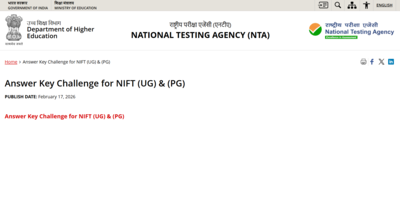The digital ethics curriculum: Should every university require a ‘how to work with AI’ course?

Walk into most offices these days, and you’ll see AI quietly at work, whether it’s scanning documents, suggesting marketing copy, or predicting financial trends. But here’s the thing: a lot of graduates leave college completely unprepared to use these tools responsibly. They might know how to click buttons, but not the ethical questions or legal risks behind those clicks. That gap is making a growing number of educators argue that AI literacy should be mandatory for every student—not just those studying computer science.The real question isn’t whether AI will touch your career—it’s whether you’ll know what to do when it does. Law firms, marketing agencies, and financial institutions aren’t experimenting with AI anymore. They rely on it. And yet, students often reach the workforce with little more than a “good luck, figure it out” approach.Most programmes leave students unpreparedOutside of tech departments, AI education is inconsistent at best. A liberal arts major might never learn what makes an algorithm tick. A law student might never be asked to consider how AI could misread contracts. And when AI courses do exist, they’re usually optional electives tucked away in computer science.Meanwhile, workplaces are adopting AI at lightning speed. Marketing teams use it to write copy and segment customers. Law offices rely on algorithms to check contracts. Financial analysts turn to machine learning to forecast risks. And new employees? They’re expected to hit the ground running—often without any real guidance.The problem isn’t just personal skill. AI can mislead, misrepresent, and mishandle sensitive information. Employees who haven’t been trained to spot these risks may make mistakes that aren’t just embarrassing—they can be costly or even legally dangerous.What students actually need to learnA solid AI curriculum goes beyond knowing which buttons to press. Take bias, for example. Hiring algorithms have rejected qualified candidates because of gender or ethnicity. Facial recognition software often misidentifies people from certain demographic groups. Students need to understand why these failures happen—and how to fix them.Then there’s data privacy. AI tools collect mountains of personal information. Professionals across fields—from healthcare to finance—need to know what happens to that data and what the law says about it.Transparency matters too. Many AI systems are “black boxes,” giving results without explanation. Doctors, bankers, and judges can’t just accept AI recommendations blindly—they need to understand what the system is doing and when it matters to provide a reasoned decision.Intellectual property adds another layer of complexity. Who owns the content AI generates? Is it ethical to train AI on copyrighted work? Students need at least a working understanding of these murky issues.The professional liability dimensionUsing AI incorrectly can have serious consequences. A lawyer submitting AI-generated errors could face disciplinary action. A financial advisor relying on biased predictions could attract regulatory penalties. These scenarios are not hypothetical—they happen.Laws are catching up. The EU’s AI Act, for example, imposes rules around transparency, accountability, and risk management. Similar regulations are appearing in countries around the world. In a few years, professionals in nearly every sector will need at least a baseline understanding of AI compliance.Universities have a choice: treat AI literacy as a “nice-to-have” or as essential preparation for modern careers. Graduates in journalism, architecture, or almost any other field will encounter AI tools daily. Sending them in unprepared isn’t just an academic oversight—it’s a professional risk.






